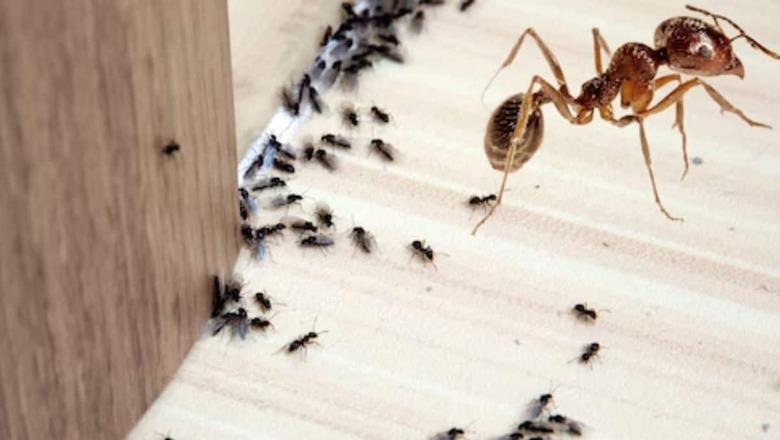
views
You must have seen ants in your house. Do you know ants have a smell of their own? According to reports, many species of ants release strong-smelling chemicals when they’re angry, threatened, or being squished. When irritated, trap-jaw ants emit a chocolate-like odour, whereas citronella ants release a lemony odour. The odorous house ant smells like blue cheese or sour coconuts. This is because the chemicals it emits, methyl ketones, are likewise generated by the penicillium bacteria found in blue cheese and decaying coconuts. Formic acid is another unpleasant chemical generated by many ant species. Wood ants produce a large amount of the vinegary material in their venom glands to spray at victims and attackers. When ants die naturally, they emit oleic acid, which is the major fatty acid found in olive oil. This gives dead ants a ‘freshly prepared salad’ odour, which acts as a chemical indication to the remainder of the colony to clean up the bodies before they decompose.
Not all ant species have a strong enough odour that the human nose can detect, as those smells are quite mild. It is only after crushing it one can smell it, and it becomes apparent. If a large number of these ants travel together, the smell becomes detectable. There are some ants that give off smells from a distance.
Earlier, a team of researchers at Vanderbilt University in Nashville, United States, revealed a special mechanism in ants that is responsible for triggering their aggressive behaviour.
A press release by Vanderbilt University further revealed the contents of the research, making it easy to understand how ants use the ‘lock-and-key’ mechanism to regulate their behaviour.
They distinguish between nestmates and non-nestmates using chemical markers that are made up of specific odorants on their bodies. The ants smell these odours and decode the specific compounds on intruder ants from other colonies. Based on this odour, they determine whether to accept a nestmate or attack a non-nestmate.


















Comments
0 comment